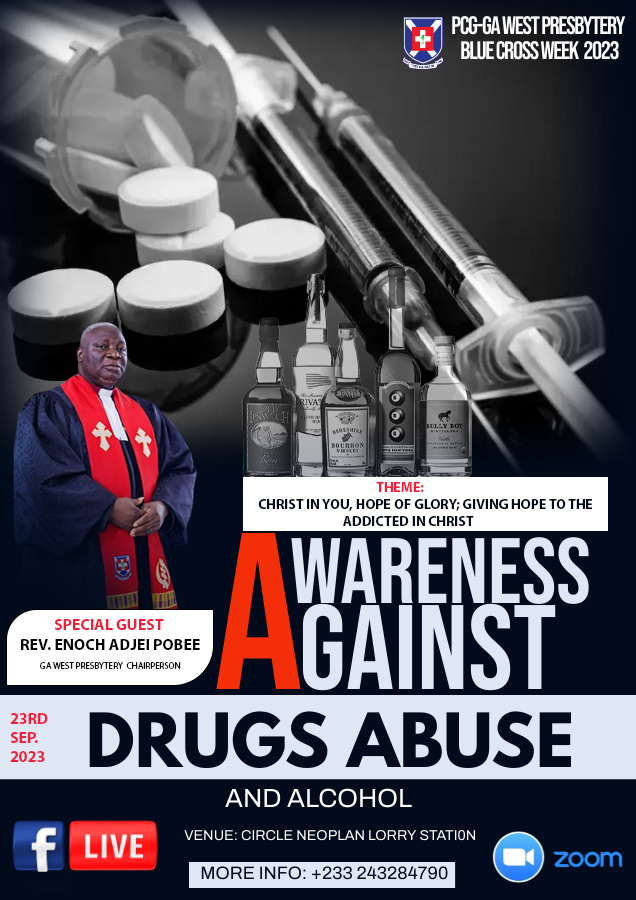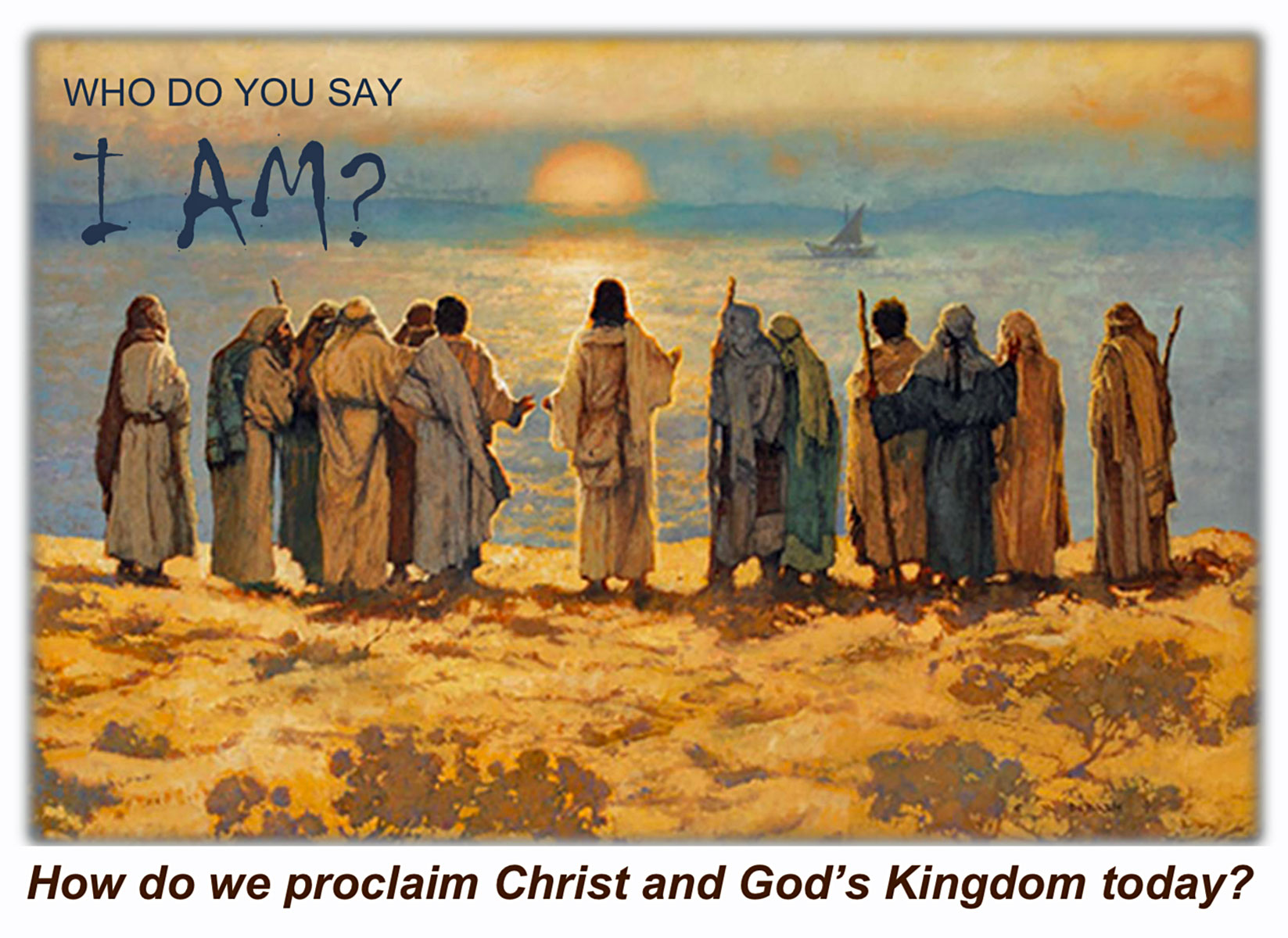
Friday, 1 December 2023
THE GLORIOUS HOPE OF THE SENIOR CITIZEN IN CHRIST

Saturday, 25 November 2023
CALLED TO SERVE

THEME: CALLED TO SERVE

Friday, 24 November 2023
CALLED TO SERVE

Saturday, 18 November 2023
TWO KEYS TO A LASTING MARRIAGE
Theme: Two Keys to a Lasting Marriage

Sunday, 29 October 2023
JOBS EXPECTED TO BE IN HIGH DEMAND IN THE NEXT 10 YEARS
SERMON BY: REV. IMMANUEL WIAFE

YOUTH JOB SEARCH PRAYER
3 Prayer topics for the youth in
seeking job opportunities in these era
Certainly, here are three prayer
topics for youth seeking job opportunities in these times:
Guidance and Clarity: Pray for guidance to help the youth
discern their career path and find clarity in their job search. Ask for wisdom
to make informed decisions and choose the right opportunities.
Strength and Resilience: Pray for the strength and resilience
of the youth as they face the challenges and uncertainties of the job market.
Request for the determination to persevere in the face of rejection or
setbacks.
Networking and Support: Pray for the youth to establish
meaningful connections and receive support from mentors, peers, and others who
can help them in their job search. Ask for opportunities to build a strong
professional network.
These prayers can provide emotional
and spiritual support during the job-seeking process.
SERMON BY: REV. IMMANUEL WIAFE
YOUTH JOB SEARCH PRAYER
3 Prayer topics for the youth in
seeking job opportunities in these era
Certainly, here are three prayer
topics for youth seeking job opportunities in these times:
Guidance and Clarity: Pray for guidance to help the youth
discern their career path and find clarity in their job search. Ask for wisdom
to make informed decisions and choose the right opportunities.
Strength and Resilience: Pray for the strength and resilience
of the youth as they face the challenges and uncertainties of the job market.
Request for the determination to persevere in the face of rejection or
setbacks.
Networking and Support: Pray for the youth to establish
meaningful connections and receive support from mentors, peers, and others who
can help them in their job search. Ask for opportunities to build a strong
professional network.
These prayers can provide emotional
and spiritual support during the job-seeking process.

JOBS EXPECTED TO BE IN HIGH DEMAND IN
THE NEXT 10 YEARS
Cybersecurity: With the increasing reliance on
digital technology, there's a growing need for professionals who can protect
data and systems from cyber threats.
Nurse Practitioner: As the population ages and healthcare
demands rise, nurse practitioners will play a critical role in providing
primary healthcare services.
Physical Therapist Aides: These individuals assist physical
therapists in providing rehabilitative services, and as the population ages,
the demand for such services is expected to increase.
Big Data: Jobs in big data involve managing and
analyzing large datasets. The world generates enormous amounts of data daily,
and organizations need experts to extract valuable insights from it.
Medical Assistants: They help healthcare facilities run
smoothly by performing administrative and clinical tasks. The demand is driven
by the expansion of healthcare services.
Software Developer: Software developers create
applications and systems for a wide range of industries, and as technology
continues to advance, their skills will remain in high demand.
Speech-Language Pathologist: These professionals diagnose and
treat speech and communication disorders, addressing a growing need for support
in this area.
Wind Turbine Technicians: As the world shifts toward renewable
energy sources, the maintenance and installation of wind turbines will be a key
job in the energy sector.
AI Fixer: This job likely refers to AI
specialists who maintain and improve artificial intelligence systems. As AI
becomes more integrated into various industries, there's a need for
professionals to ensure its functionality.
Genetic Counselors: With advancements in genetics and
personalized medicine, genetic counselors help individuals understand and make
informed decisions about their genetic information.
Healthcare: This is a broad category encompassing
various healthcare professionals, including doctors, nurses, and specialists.
As the population grows and ages, the demand for healthcare services continues
to rise.
Home Health Aides: With an aging population, there's an
increasing need for home health aides to provide care and assistance to elderly
or disabled individuals in their homes.
Mathematicians: They apply mathematical theories and
techniques to solve practical problems across industries, including finance,
engineering, and technology.
Occupational Therapy: Occupational therapists help people
with injuries or disabilities regain their ability to perform daily tasks, and
the demand for their services is on the rise.
Assistants and Aides: These roles often involve providing
support in various industries, such as administrative assistants, personal care
aides, and more, and they are expected to remain in demand.
Operations Research Analyst: They use analytical methods to help
organizations make decisions and solve complex problems, optimizing processes
and efficiency.
Solar Photovoltaic Installers: As solar energy becomes more
popular, these technicians install and maintain solar panels, contributing to
the growth of renewable energy.
Statisticians: Statisticians use data to make
informed decisions in fields like healthcare, finance, and government, and
their expertise is valuable for evidence-based decision-making.
These jobs are expected to be in high
demand due to factors like technological advancements, demographic shifts, and
changes in industry needs. Investing in education and training for these
professions can lead to promising career opportunities.
Cybersecurity: With the increasing reliance on
digital technology, there's a growing need for professionals who can protect
data and systems from cyber threats.
Nurse Practitioner: As the population ages and healthcare
demands rise, nurse practitioners will play a critical role in providing
primary healthcare services.
Physical Therapist Aides: These individuals assist physical
therapists in providing rehabilitative services, and as the population ages,
the demand for such services is expected to increase.
Big Data: Jobs in big data involve managing and
analyzing large datasets. The world generates enormous amounts of data daily,
and organizations need experts to extract valuable insights from it.
Medical Assistants: They help healthcare facilities run
smoothly by performing administrative and clinical tasks. The demand is driven
by the expansion of healthcare services.
Software Developer: Software developers create
applications and systems for a wide range of industries, and as technology
continues to advance, their skills will remain in high demand.
Speech-Language Pathologist: These professionals diagnose and
treat speech and communication disorders, addressing a growing need for support
in this area.
Wind Turbine Technicians: As the world shifts toward renewable
energy sources, the maintenance and installation of wind turbines will be a key
job in the energy sector.
AI Fixer: This job likely refers to AI
specialists who maintain and improve artificial intelligence systems. As AI
becomes more integrated into various industries, there's a need for
professionals to ensure its functionality.
Genetic Counselors: With advancements in genetics and
personalized medicine, genetic counselors help individuals understand and make
informed decisions about their genetic information.
Healthcare: This is a broad category encompassing
various healthcare professionals, including doctors, nurses, and specialists.
As the population grows and ages, the demand for healthcare services continues
to rise.
Home Health Aides: With an aging population, there's an
increasing need for home health aides to provide care and assistance to elderly
or disabled individuals in their homes.
Mathematicians: They apply mathematical theories and
techniques to solve practical problems across industries, including finance,
engineering, and technology.
Occupational Therapy: Occupational therapists help people
with injuries or disabilities regain their ability to perform daily tasks, and
the demand for their services is on the rise.
Assistants and Aides: These roles often involve providing
support in various industries, such as administrative assistants, personal care
aides, and more, and they are expected to remain in demand.
Operations Research Analyst: They use analytical methods to help
organizations make decisions and solve complex problems, optimizing processes
and efficiency.
Solar Photovoltaic Installers: As solar energy becomes more
popular, these technicians install and maintain solar panels, contributing to
the growth of renewable energy.
Statisticians: Statisticians use data to make
informed decisions in fields like healthcare, finance, and government, and
their expertise is valuable for evidence-based decision-making.
These jobs are expected to be in high
demand due to factors like technological advancements, demographic shifts, and
changes in industry needs. Investing in education and training for these
professions can lead to promising career opportunities.
Saturday, 28 October 2023
THEME: BEWARE OF FALSE TEACHINGS
THEME: BEWARE OF FALSE TEACHINGS
Deuteronomy 34:1-12;
1 Thessalonians 2:1-8;
Matthew 22:34-46.

Introduction:
Good morning, brothers and sisters.
Today, I we will reflect on the theme about the importance of guarding against
false teachings in our faith journey. We will draw inspiration from Deuteronomy
34:1-12, 1 Thessalonians 2:1-8, and Matthew 22:34-46. Let us start by looking
at these passages.
I. Deuteronomy 34:1-12
In Deuteronomy, we read about the end
of Moses' life and his faithful leadership. Moses was a true prophet of God,
who led the Israelites out of Egypt and through the wilderness. His life and
teachings were grounded in God's truth. However, even Moses had to pass the
torch to Joshua. This transition highlights the importance of recognizing that
no human leader, no matter how wise, is infallible. We should always prioritize
the truth of God's Word over the teachings of any individual.
II. 1 Thessalonians 2:1-8
The Apostle Paul, in his letter to
the Thessalonians, emphasizes the authenticity of his ministry. He and his
fellow missionaries did not preach with deceit or impure motives. Instead, they
were gentle, caring, and shared the Gospel with a deep love for the people they
served. This passage reminds us to be discerning when it comes to our spiritual
leaders. Authentic, God-fearing leaders should be recognized by their motives,
humility, and love for the truth.
III. Matthew 22:34-46
In this Gospel passage, the Pharisees
attempted to test Jesus by asking Him about the greatest commandment. Jesus
responded with the two greatest commandments: to love God with all our heart,
soul, and mind and to love our neighbors as ourselves. This teaching reflects
the essence of God's truth. It reminds us that at the core of our faith is love
and devotion to God. Any teaching that leads us away from these fundamental
principles should be approached with caution.
Practical Application:
Study the Scriptures: To guard
against false teachings, immerse yourself in the Word of God. Regularly study
and meditate on His Word to gain a deeper understanding of His truth.
Test the Spirits: 1 John 4:1 urges us
to test every spirit to see if it is from God. When you encounter new teachings
or spiritual leaders, assess them against the foundational truths of the Bible.
Seek Discernment: Ask the Holy Spirit
for discernment. Pray for wisdom to recognize and reject any teachings that are
contrary to God's Word.
Hold Leaders Accountable: Support and
respect your spiritual leaders, but also hold them accountable. Ensure that
they lead with integrity, love, and a commitment to God's truth.
Love and Unity: Embrace the
commandment of love. Show love and unity within your faith community, for it is
through love that we demonstrate the authenticity of our faith.
Conclusion:
In conclusion, brothers and sisters,
the Scriptures remind us of the importance of guarding against false teachings.
We are to hold fast to the timeless truths of God's Word and test everything
against it. Let us remember the examples of Moses and Paul, and the teachings
of Jesus, to navigate our faith journey with wisdom, discernment, and love. May
God guide us and protect us from deception as we walk in His truth. Amen.
Friday, 27 October 2023
THEME: "The Vital Role of Evangelism: Nourishing the Church"


Monday, 25 September 2023
PERSISTING TO THE END

THEME: PERSISTING TO THE END
Scripture Reading
1st Scripture Reading - Exodus
17:1-7,
2nd Scripture Reading - Philippians
2:1-13,
3rd Scripture Reading - Matthew
21:23-32
As we observed Worldwide Communion
today let us educate ourselves on what exactly Worldwide Communion is
Worldwide Communion, also known as
Holy Communion or the Eucharist, is a central religious practice in
Christianity where believers partake in bread and wine (or grape juice) as
symbols of the body and blood of Jesus Christ. It is observed by various
Christian denominations around the world. Here are some key points and relevant
Bible texts:
Significance: Worldwide Communion commemorates
the Last Supper, the final meal Jesus shared with his disciples before his
crucifixion.
Scriptural Basis: The foundation for Communion can be
found in several passages in the Bible:
Matthew 26:26-28: "While they were eating, Jesus
took bread, and when he had given thanks, he broke it and gave it to his
disciples, saying, 'Take and eat; this is my body.' Then he took a cup, and
when he had given thanks, he gave it to them, saying, 'Drink from it, all of
you. This is my blood of the covenant, which is poured out for many for the
forgiveness of sins.'"
1 Corinthians 11:23-26: "For I received from the Lord
what I also passed on to you: The Lord Jesus, on the night he was betrayed,
took bread, and when he had given thanks, he broke it and said, 'This is my
body, which is for you; do this in remembrance of me.' In the same way, after
supper, he took the cup, saying, 'This cup is the new covenant in my blood; do
this, whenever you drink it, in remembrance of me.'"
Unity: Worldwide Communion serves as a
unifying practice for Christians, emphasizing their common faith in Christ's
sacrifice.
Variation: The way Communion is observed can
vary among denominations. Some see the bread and wine as symbolic, while others
believe in the literal transformation into the body and blood of Christ
(transubstantiation).
Frequency: The frequency of Communion also
varies, with some churches celebrating it weekly, monthly, or on special
occasions.
In summary, Worldwide Communion is a
sacred practice in Christianity, rooted in the Last Supper of Jesus and
symbolizing the sacrifice he made for the forgiveness of sins. Its specific
practices and theological interpretations can vary among Christian
denominations.
INTRODUCTION:
PEACE BE WITH YOU, Beloved, Good
morning, we welcome ourselves to another Spirit Filled Service, dear brothers
and sisters in Christ. Today, we gather to explore a theme deeply woven into
the fabric of our faith: persisting to the end. We will draw wisdom from three
passages from the Bible - Exodus 17:1-7, Philippians 2:1-13, and Matthew
21:23-32. As we reflect on these scriptures, let us consider how they
illuminate the path of perseverance in our Christian journey.

I. The Struggle for Perseverance
(Exodus 17:1-7):
In Exodus 17:1-7, we encounter the
Israelites in the wilderness, thirsty and weary, facing the daunting challenge
of water scarcity. Their journey was filled with trials and tribulations, yet
they persevered. From this passage, we learn:
A. Perseverance Amidst Trials:
Just as the Israelites faced the wilderness,
we, too, encounter trials in our faith journey.
Despite the hardships, we must
persist, for God's provision often comes after we have exhausted our own
strength.
B. Trusting in God's Faithfulness:
The rock that provided water for the Israelites
symbolizes God's faithfulness.
In our struggles, we must trust in
God's unwavering promise to sustain us.
II. The Example of Christ
(Philippians 2:1-13):
In Philippians 2:1-13, the Apostle
Paul points us to the ultimate example of perseverance - Jesus Christ. He left
His heavenly glory to become a servant and even endured the cross. From this
passage, we learn:

A. The Humility of Christ:
Jesus' humility in His earthly life
teaches us to put others before ourselves.
Perseverance often requires humbling
ourselves for the sake of God's will.
B. God's Empowering Grace:
God works in us, both to will and to
act according to His good purpose.
Through His grace, we find the
strength to persist in our Christian walk.
III. The Parable of the Two Sons
(Matthew 21:23-32):
In Matthew 21:23-32, Jesus tells the
parable of the two sons—one who initially refused but later obeyed and another
who professed obedience but did not follow through. This parable reminds us:
A. Actions Speak Louder:
Mere words and intentions are
insufficient; genuine persistence is displayed through actions.
Our faithfulness to God's call is
seen in our obedience and deeds.
B. Repentance and Transformation:
The son who initially refused
repented and obeyed. His transformation illustrates the power of genuine
repentance.
Persisting to the end often involves
a process of inner change and growth.
Conclusion:
As we reflect on Exodus 17:1-7,
Philippians 2:1-13, and Matthew 21:23-32, we are reminded that persisting to
the end is not an easy path, but it is a path filled with divine grace,
humility, and transformation. Just as the Israelites persevered through the
wilderness, as Christ humbled Himself for our sake, and as the repentant son
obeyed, let us too be encouraged to persist in our Christian journey. May we
trust in God's faithfulness, rely on His empowering grace, and let our actions
reflect our unwavering commitment to follow Christ to the end. In doing so, we
find the strength to persevere and the promise of eternal life in Him.
Amen.
Let’s pray
Sunday, 17 September 2023
THEME: GIVING HOPE TO THE ADDICTED IN CHRIST

THEME: GIVING HOPE TO THE
ADDICTED IN CHRIST
1st Bible Reading:- Proverbs
23:18,
2nd Bible Reading:- Colossians
1:27,
and
3rd Bible Reading:- Luke
15:11-24
BY: REV. IMMANUEL WIAFE
Blue Cross Sunday 24th September, 2023
INTRODUCTION:
Dear brothers and sisters in Christ,
today we gather to reflect on a theme that is close to our hearts –
"Giving Hope to the addicted in Christ." Addiction is a battle that
many face, but as Christians, we believe in the power of Christ's redemption
and the hope He offers to all. Our scripture readings from Proverbs 23:18,
Colossians 1:27, and Luke 15:11-24 provide us with profound insights into this
topic.

I. Proverbs 23:18 - "Surely
there is a future, and your hope will not be cut off."
A. This verse reminds us that, in
Christ, there is always hope for a brighter future.
B. Addiction can make one feel
hopeless, but as Christians, we know that Christ offers a future filled with
hope.
C. Let us share this message with
those struggling, assuring them that Christ's love can transform their lives.

II. Colossians 1:27 - "To them
God chose to make known how great among the Gentiles are the riches of the
glory of this mystery, which is Christ in you, the hope of glory."
A. This scripture reveals that Christ
resides within us, offering hope and glory.
B. Addiction can create a void in
one's life, but Christ's presence fills that void with hope and purpose.
C. Let us encourage those in the grip
of addiction to embrace the indwelling Christ and find their hope in Him.

III. Luke 15:11-24 - The Parable of
the Prodigal Son
A. This parable beautifully
illustrates God's boundless love and forgiveness.
B. The prodigal son, lost in
addiction to worldly pleasures, found hope and redemption when he returned to
his father.
C. As Christians, we must emulate the
father's love and open our hearts to those seeking recovery, offering hope and
a second chance.
CONCLUSION:
In closing, dear brothers and
sisters, let us remember that addiction can affect anyone, but in Christ, there
is hope for healing and redemption. As we reflect on Proverbs 23:18, Colossians
1:27, and the Parable of the Prodigal Son, let us commit ourselves to being
beacons of hope for those battling addiction. Through Christ's love and our
support, we can help them find their way back to the path of righteousness,
knowing that, in Christ, there is always hope for a brighter future. Amen.
Saturday, 26 August 2023
THE PERIL OF STANDING AGAINST GOD'S CHOSEN SERVANTS - LESSONS FROM THE STORY OF KORAH

THEME:
THE PERIL OF STANDING AGAINST GOD'S CHOSEN SERVANTS - LESSONS FROM THE STORY OF
KORAH
Scripture
Reading Number 16
By: Rev. Immanuel Wiafe
Introduction:
Good morning, Peace be with you, beloved brethren. Today, we
delve into the book of Numbers, specifically chapter 16, to explore a
significant lesson that the story of Korah teaches us as Christians who might
find ourselves standing against God's appointed servants. The narrative of
Korah serves as a timeless reminder of the dangers that arise when we challenge
the authority and leadership established by God.
I. The Context of Rebellion:
In Numbers 16, we encounter Korah, a Levite, along with
Dathan, Abiram, and others, who rise up against Moses and Aaron, God's chosen
leaders. They questioned Moses' authority and challenged the priesthood of
Aaron, claiming they were just as qualified to lead. This rebellion stems from
a lack of humility and an attempt to elevate personal desires over God's
ordained order.
II. The Consequences of Rebellion:
The consequences of Korah's rebellion were severe and serve
as a warning for us today. The ground opened up, swallowing Korah and his
followers, a vivid illustration of God's judgment against those who undermine
His chosen servants. This catastrophic event highlights that opposing God's
appointed leaders is ultimately opposing God Himself.
III. Lessons for Christians Today:
Respect for God's Appointed Leadership: As Christians, we
must remember that God appoints leaders for specific purposes. We are called to
respect and honor those whom God has placed in positions of authority,
recognizing that their leadership is a part of God's divine plan.
Humility and Obedience: The story of Korah teaches us the
importance of humility and obedience. Instead of seeking our own ambitions, we
must humbly submit to God's authority, trusting that He knows what's best for
His people.
Discernment in Disagreements: While we're encouraged to use
discernment and hold leaders accountable if they stray from God's Word, we
should do so with a spirit of humility and respect. Publicly rebelling or
sowing discord can lead to division within the body of Christ.
Prayerful Consideration: When we have concerns about
leadership, it's crucial to approach the situation with prayer and humility.
Seek guidance from God and wise counsel before taking any action.
Conclusion:
In conclusion, the story of Korah serves as a solemn
reminder that standing against God's chosen servants can have dire
consequences. As Christians, we are called to respect, honor, and submit to
God's appointed leadership, even if we may not always fully understand the
reasons behind it. Let us be people of humility, obedience, and discernment,
always seeking God's guidance in how we respond to situations that challenge
us. May we learn from the mistakes of Korah and strive to align our hearts with
God's will and purpose.
Theme: "Who Do You Say I Am?




Friday, 18 August 2023
GREAT FAITH REWARDS

THE WORD
Sunday 20th August 2023
THEME: GREAT FAITH REWARDS
Bible Readings
1st
Reading: Genesis 45:1-15,
2nd
Reading: Romans 11:1-2, 29-32, and
3rd
Reading: Matthew 15:10-28
INTRODUCTION:
Happy
Sunday, Peace be with you, Good morning, dear brothers and sisters in Christ.
Last
week our theme was You of Little Faith where we explore the need of we
Christians having faith in the Lord Jesus Christ, which will lead to positive
result in our Christian service.
Today,
we are again gather to explore a theme that resonates deeply within the human
heart the “Rewards Of Great Faith”.
Our scripture three readings from Genesis 45:1-15, Romans 11:1-2, 29-32, and
Matthew 15:10-28 unveil to us the profound truth that great faith is not only
transformative but also profoundly rewarding.
THE
STORY OF JOSEPH: Genesis 45:1-15
In
our first reading, we encounter the remarkable story of Joseph, a young man who
endured years of betrayal, suffering, and injustice. Yet, through it all, he
clung to his faith in God's sovereign plan. Joseph's faith in God's purposes
and his unwavering trust in His divine providence led to a truly remarkable
reward. Not only did he rise from the pit of despair to the pinnacle of power
in Egypt, but he also forgave his brothers who had sold him into slavery.
Joseph's great faith was rewarded with reconciliation, restoration, and the
fulfillment of God's promises.
Transition:
Just as Joseph's great faith led to incredible rewards, our next reading from
Romans sheds light on how faith plays a pivotal role in God's redemptive plan.
GOD'S
UNFAILING PLAN: Romans 11:1-2, 29-32
The
apostle Paul, in his letter to the Romans, reflects on the unbreakable bond
between God and His chosen people. He reminds us that God's plan of salvation
is rooted in His faithfulness and grace. Even in moments of doubt and
disobedience, God's love remains unchanging. Paul's words emphasize that great
faith is not merely a personal virtue, but it is the key that unlocks the doors
of God's mercy and forgiveness. Through our faith, we become partakers of God's
redemptive plan, and our reward is the unmerited gift of salvation.
Transition:
As we delve deeper into the concept of faith, our final reading from Matthew
reveals an extraordinary encounter that highlights the transformative power of
great faith.

THE
PERSISTENT FAITH OF THE CANAANITE WOMAN:
Matthew 15:10-28
In
this passage, Jesus encounters a Canaanite woman who displays remarkable faith.
Despite facing rejection and seemingly insurmountable obstacles, she persists
in her plea for her daughter's healing. Jesus commends her faith, and her
persistence is rewarded with the miraculous healing of her daughter. This
account serves as a powerful reminder that great faith often requires
unwavering persistence, and it leads to extraordinary rewards that transcend
human understanding.
CONCLUSION
As
we reflect on these passages, we are reminded that great faith is not a mere
intellectual belief, but a dynamic and transformative force that shapes our
lives and brings us into deeper communion with God. Just as Joseph's faith led
to reconciliation, Paul's faith highlighted God's redemptive plan, and the
Canaanite woman's faith brought about a miraculous healing, our own faith can
lead us to experiences of restoration, purpose, and divine intervention.
May
we be inspired by these biblical examples to cultivate and nurture our faith in
God, knowing that our great faith will be richly rewarded – whether through
reconciliation, salvation, healing, or the countless other ways God chooses to
bless us. Let us strive to walk in faith, trusting in God's unfailing promises,
and may our lives be a testimony to the world of the extraordinary rewards that
come from placing our trust in the One who is faithful and true.
Amen.
SONG:
My faith has found, a resting place…
Prayer!
Friday, 11 August 2023
Oh! You of little faith
Theme: - Oh! You of little faith
Genesis 37:1-4, 12-28;
Romans 10:5-15 and
Matthew 14:22-33.
BY: REV. IMMANUEL A. WIAFE
Introduction:
Greetings, beloved congregation, as we gather to reflect upon the powerful theme of faith that runs through Genesis, Romans, and Matthew. In a world filled with uncertainties, challenges, and storms, the stories of Joseph, the Apostle Paul, and Peter serve as beacons of unwavering faith, inspiring us to strengthen our own faith journey.
Body:
Joseph's Faith Amidst Adversity (Genesis 37:1-4, 12-28):
In the face of jealousy and betrayal from his own brothers, Joseph's unyielding faith in God's plan led him to rise above his circumstances. Despite being sold into slavery, he remained steadfast, eventually becoming a prominent figure in Egypt. Joseph's story teaches us that even in the darkest moments, we can trust that God's purpose will prevail.
The Message of Salvation (Romans 10:5-15):
The Apostle Paul underscores the importance of faith in salvation. He emphasizes that faith comes from hearing the Word of God and believing in our hearts. As believers, we are called to share this message of salvation with others, so that they too can experience the transformational power of faith in Christ.
Walking on Water: Stepping Out in Faith (Matthew 14:22-33):
The iconic story of Peter walking on water illustrates the delicate balance between faith and doubt. As Peter stepped out of the boat at Jesus' invitation, he experienced miraculous walking on water. However, when he focused on the storm, doubt crept in. Jesus' outstretched hand reminds us that even in moments of doubt, our faith can be restored by fixing our eyes on Him.
Conclusion:
Dear friends, the threads of faith woven through these passages remind us that faith is not the absence of doubt, but the triumph over it. We are challenged to embrace unwavering faith, just as Joseph did, to spread the message of salvation like Paul, and to step out courageously like Peter. Let us cultivate a faith that shines brightly amidst life's storms, illuminating our path and drawing others closer to God's love. As we navigate the waters of life, may we hold fast to the truth that with faith, all things are possible.
Amen.
OH! YOU OF LITTLE FAITH
Theme: - OH! YOU OF LITTLE FAITH
READINGS:
GENESIS 37:1-4
ROMANS 10:5-15
MATTHEW 14:22-33
By: Rev. Immanuel A. Wiafe
INTRODUCTION
According to the passages Genesis 37:1-4, 12-28; Romans 10:5-15, and Matthew 14:22-33, faith can be understood as follows:
Genesis 37:1-4, 12-28: In this story, faith is not explicitly mentioned, but it is implied. Joseph, despite facing trials and adversity, holds onto his dreams and trusts that God's plan will prevail. His unwavering belief in God's ultimate purpose in his life can be seen as an expression of faith.
Romans 10:5-15: In this passage, faith is presented as the means of salvation. It emphasizes that righteousness comes through faith in Jesus Christ and that everyone who believes in him will be saved. It implies that faith involves trust and reliance on Jesus as the Savior.
Matthew 14:22-33: This story recounts the episode where Jesus walks on water, and Peter, in a display of faith, asks Jesus to allow him to walk on the water as well. Initially, Peter steps out of the boat in faith, but when he becomes afraid and doubts, he starts to sink. Jesus then rescues him, highlighting that faith requires trust and not allowing doubt to overshadow it.
Overall, faith, as depicted in these passages, involves a deep trust and belief in God, His plans, and the saving power of Jesus Christ. It is the conviction that God will fulfill His promises and that by placing our trust in Him, we can receive salvation and experience His intervention in our lives.
WHAT THEN IS BIBLICAL FAITH?
Biblical faith can be defined as a complete trust and confidence in God, His character, His promises, and His Word. It is an active and living faith that is demonstrated through obedience and reliance on God.
Here are additional scripture texts that provide insights into biblical faith:
Hebrews 11:1-3 - "Now faith is confidence in what we hope for and assurance about what we do not see. This is what the ancients were commended for. By faith, we understand that the universe was formed at God’s command so that what is seen was not made out of what was visible."
Hebrews 11:6 - "And without faith, it is impossible to please God, because anyone who comes to Him must believe that He exists and that He rewards those who earnestly seek Him."
James 2:14-26 - This entire passage emphasizes the importance of active faith, stating that faith without works is dead. It highlights that genuine faith is evidenced by works of obedience and that faith and action go hand in hand.
Ephesians 2:8-9 - "For it is by grace you have been saved, through faith and this is not from yourselves, it is the gift of God not by works, so that no one can boast." This passage emphasizes that salvation is received through faith in God's grace and not through our own works or efforts.
Mark 11:22-24 - "Have faith in God... Therefore I tell you, whatever you ask for in prayer, believe that you have received it, and it will be yours." This verse teaches that faith involves believing in God's power and confidently trusting in His ability to answer prayer.
In summary, biblical faith involves trust and confidence in God, His promises, and His Word. It is demonstrated through obedience, reliance, and active belief in His power and goodness.
WHAT FAITH DOES? According to Genesis 37:1-4, 12-28; Romans 10:5-15 and Matthew 14:22-33
Faith, as depicted in these passages, involves belief, trust, and taking action based on one's beliefs. In Genesis 37:1-4, Joseph's dreams reflect his faith in God's plan for his future. In Romans 10:5-15, faith is emphasized as the basis for salvation, prompting believers to share the message. In Matthew 14:22-33, Peter's steps on water demonstrate his faith in Jesus, though doubt briefly falters his confidence.
WHAT CAUSES OUR FAITH TO FALL?
There can be various reasons for a person's faith to weaken or fall. It could be due to doubt, personal struggles, external influences, or life challenges. Here are a few relevant scripture texts:
Doubt and Uncertainty: Matthew 14:31 - "Immediately Jesus reached out his hand and caught him. 'You of little faith,' he said, 'why did you doubt?'"
Trials and Tribulations: James 1:2-3 - "Consider it pure joy, my brothers and sisters, whenever you face trials of many kinds, because you know that the testing of your faith produces perseverance."
Deception and False Teachings: 2 Peter 2:1 - "But there were also false prophets among the people, just as there will be false teachers among you. They will secretly introduce destructive heresies, even denying the sovereign Lord who bought them bringing swift destruction on themselves."
Worldly Temptations: 1 John 2:15-16 - "Do not love the world or anything in the world. If anyone loves the world, love for the Father is not in them. For everything in the world the lust of the flesh, the lust of the eyes, and the pride of life comes not from the Father but from the world."
Lack of Spiritual Nourishment: Hebrews 5:12-14 - "In fact, though by this time you ought to be teachers, you need someone to teach you the elementary truths of God’s word all over again. You need milk, not solid food!"
Sin and Unconfessed Wrongdoing: 1 John 1:9 - "If we confess our sins, he is faithful and just and will forgive us our sins and purify us from all unrighteousness."
Falling Away from God's Presence: Revelation 2:4-5 - "Yet I hold this against you: You have forsaken the love you had at first. Consider how far you have fallen! Repent and do the things you did at first."
Remember, the journey of faith involves both highs and lows, and seeking guidance, prayer, and seeking spiritual support can help in times of doubt or struggle.
WHAT MAKES OUR FAITH GROW?
Faith can grow through studying and reflecting on scripture, prayer, community, and experiencing God's faithfulness.
In Romans 10:17 - "So faith comes from hearing, and hearing through the word of Christ."
James 1:3-4 - "For you know that the testing of your faith produces steadfastness. And let steadfastness have its full effect, that you may be perfect and complete, lacking in nothing."
Hebrews 11:6 - "And without faith it is impossible to please him, for whoever would draw near to God must believe that he exists and that he rewards those who seek him."
Matthew 17:20 - "For truly, I say to you, if you have faith like a grain of mustard seed, you will say to this mountain, 'Move from here to there,' and it will move, and nothing will be impossible for you."
Galatians 5:6 - "For in Christ Jesus neither circumcision nor uncircumcision counts for anything, but only faith working through love."
Remember, nurturing faith is a personal journey, and these elements can help foster its growth.
What prevents us from having faith? according to Genesis 37:1-4, 12-28; Romans 10:5-15 and Matthew 14:22-33
In those passages, various factors that could prevent faith include jealousy and disbelief (Genesis 37:1-4, 12-28), misunderstanding and lack of hearing the word (Romans 10:5-15), and doubt or fear (Matthew 14:22-33). These factors can hinder one's ability to fully trust and have faith.
CONCLUSION
In Genesis 37:1-4, 12-28, the story highlights the jealousy and betrayal experienced by Joseph when his brothers sell him into slavery. Romans 10:5-15 emphasizes the importance of faith and the role of messengers in spreading the message of salvation. In Matthew 14:22-33, Jesus walks on water, teaching Peter to have faith and not doubt. These passages collectively emphasize themes of faith, trust, and the challenges believers face.
Dear friends, the threads of faith woven through these passages remind us that faith is not the absence of doubt, but the triumph over it. We are challenged to embrace unwavering faith, just as Joseph did, to spread the message of salvation like Paul, and to step out courageously like Peter. Let us cultivate a faith that shines brightly amidst life's storms, illuminating our path and drawing others closer to God's love. As we navigate the waters of life, may we hold fast to the truth that with faith, all things are possible. Amen.






